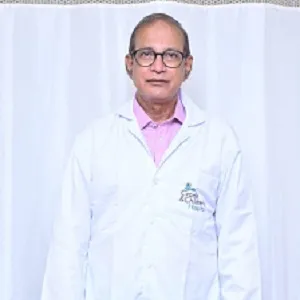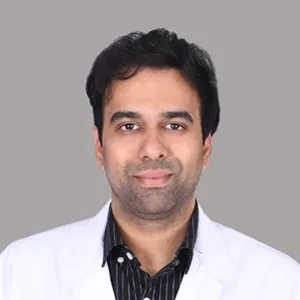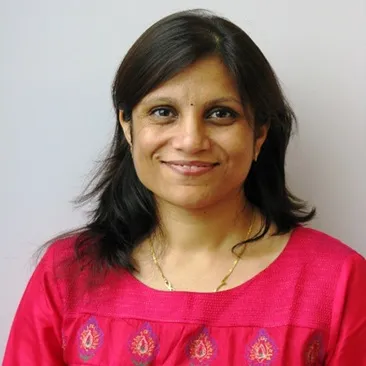What is pediatric endocrinology?
pediatric endocrinology is a field of medicine focused on the study and treatment of hormonal imbalances and disorders in children. The endocrine system produces and regulates hormones, which are crucial for a child's growth and development.
An endocrine system plays an important role in both the physical and emotional well-being of children, as it is responsible for producing and regulating hormones in the body. An endocrinologist who specialises in treating hormonal imbalances in children is known as a pediatric endocrinologist.
Importance of pediatric endocrinology
The Importance of Pediatric Endocrinology Pediatric endocrinology is an essential medical field that can help children with hormonal imbalances receive the appropriate diagnosis and treatment.
In addition to playing a crucial role in growth, metabolism, and reproduction, hormones also play a crucial role in a variety of body functions. In addition to diabetes, growth disorders, thyroid disease, and other hormonal imbalances, hormonal imbalances can also result in other health problems.
What can pediatric endocrinology treat?
A pediatric endocrinologist can help diagnose and treat these conditions. pediatric endocrinologists are specially trained to treat children and understand the unique challenges that come with treating hormonal imbalances in young patients. They have the knowledge and experience to create individualised treatment plans that can help children achieve optimal growth and development.
Conditions treated by Pediatric endocrinologists
Pediatric endocrinologists diagnose and treat a wide range of hormonal disorders in children. Some of the most common conditions treated by pediatric endocrinologists include:
- Diabetes: Diabetes is a condition in which the body cannot produce or properly use insulin, leading to high blood sugar levels.
- Growth Disorders: Growth disorders refer to conditions that affect a child's height or growth rate. Examples include growth hormone deficiency and Turner syndrome.
- Thyroid Disease: Thyroid disease occurs when the thyroid gland does not produce enough or produces too much thyroid hormone. This can lead to conditions such as hypothyroidism or hyperthyroidism.
- Puberty Disorders: Puberty disorders refer to conditions that affect the timing or progression of puberty. Examples include delayed puberty, precocious puberty, and polycystic ovary syndrome.
- Congenital Adrenal Hyperplasia (CAH): CAH is a genetic condition that affects the adrenal glands, leading to hormonal imbalances that can cause ambiguous genitalia in girls.
- Disorders of Sexual Development (DSD): DSD is a condition that causes atypical development of the internal and external genital structures.
Diagnosis and treatment by endocrinologists
Diagnosis and Treatment Pediatric endocrinologists use a variety of tests and procedures to diagnose hormonal disorders in children. These may include blood tests, urine tests, imaging studies, and genetic testing.
Once a diagnosis has been made, a pediatric endocrinologist will create a personalised treatment plan based on the child's specific condition and individual needs. Treatment options may include medications, hormone replacement therapy, surgery, and lifestyle modifications.
When to see a pediatric endocrinologist?
If you notice any unusual symptoms in your child's growth or development, it is important to seek medical attention from a pediatric endocrinologist. Some common symptoms that may warrant a visit include:
- Delayed growth or puberty
- Unexplained weight gain or weight loss
- Unexplained fatigue or weakness
- Frequent urination or thirst
- Abnormal menstrual cycles
- Development of breast tissue in boys
- Excessive hair growth in girls
- Abnormal genital development
It is essential to seek early medical attention if you notice any of these symptoms, as early diagnosis and treatment can lead to better outcomes.
pediatric endocrinology is an important medical field that plays a vital role in ensuring children's growth and development. Hormonal imbalances can have a significant impact on a child's health, and early diagnosis and treatment are essential for optimal outcomes.
Request an appointment at Apollo Cradle, Hyderabad - Jubilee Hills. Call 1860-500-4424 to book an appointment.
In the field of paediatric endocrinology, a paediatric endocrinologist is a medical professional who specialises in treating hormonal disorders in children and studying hormonal disorders.
The paediatric endocrinologist diagnoses and treats a wide range of conditions including diabetes, growth disorders, thyroid disease, puberty disorders, congenital adrenal hyperplasia, and disorders of sexual development in children.
If your child is experiencing delayed growth or puberty, unexplained weight gain or weight loss, unexplained fatigue or weakness, frequent urination or thirst, abnormal menstrual cycles, development of breast tissue in boys, excessive hair growth in girls, or abnormal genital development, you should take them to a paediatric endocrinologist.
Children with hormonal disorders may be diagnosed using a variety of tests such as blood tests, urine tests, imaging studies, and genetic testing.
There are several treatment options for hormonal disorders in children, including medications, hormone replacement therapy, surgery, and lifestyle changes to reduce symptoms.
Children's hormonal disorders often require a long course of treatment, depending on the condition of the individual child and how he or she responds to the treatment.
Untreated hormonal disorders in children can lead to serious health complications, including growth delays, diabetes, and thyroid disease.
While some hormonal disorders in children can be cured, others can only be managed through ongoing treatment and monitoring. The goal of treatment is to manage symptoms and prevent complications.
Our Doctors
Treatments
- Anaesthesia & Pain Management
- General Pediatrics
- Growth Chart
- Newborn Screening
- Pediatric Allergy
- Pediatric Dermatology
- Pediatric Endocrinology
- Pediatric Nutrition
- Pediatric Orthopedics
- Pediatric Psychology
- Pediatric Surgery & Urology
- ROP Screening
- Stem Cell Banking
- Vaccination/Immunisation Schedule

 90% Patient Satisfaction Score
90% Patient Satisfaction Score









